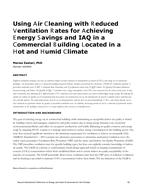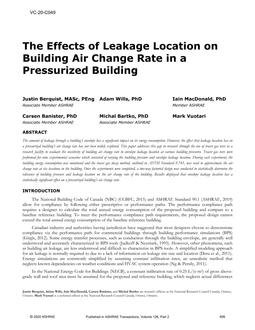The heating and cooling processes necessary to maintain comfort in a building exhibit dynamic operation as the result of hardware characteristics and the variations of the load imposed on the system. In the latter case, the load may be varied due to the operation of the system to take advantage of allowed dynamics of comfort conditions. The effect of the dynamic operation of a system on energy use has only recently been the subject of in-depth studies. The objective of this paper is to present the results of preliminary analyses of a number of dynamic-energy relationships.
As the result of prior research work, a simulation of HVAC control system processes was developed. Using this simulation, the effect of dynamics of common HVAC system types on energy usage is considered. The processes are then examined where comfort conditions are allowed to vary with time and where a prior knowledge of significant system load changes is assumed. These results are preliminary in that specific validations have not been performed nor have the relative energy savings observed for specific process conditions been extended to long term operational benefits. It is hoped that this paper will stimulate such work.
Citation: Symposium, ASHRAE Transactions, Volume 86, Part 2, Denver, Colorado
Product Details
- Published:
- 1980
- Number of Pages:
- 19
- File Size:
- 1 file , 2.5 MB
- Product Code(s):
- D-DV-80-04-3


